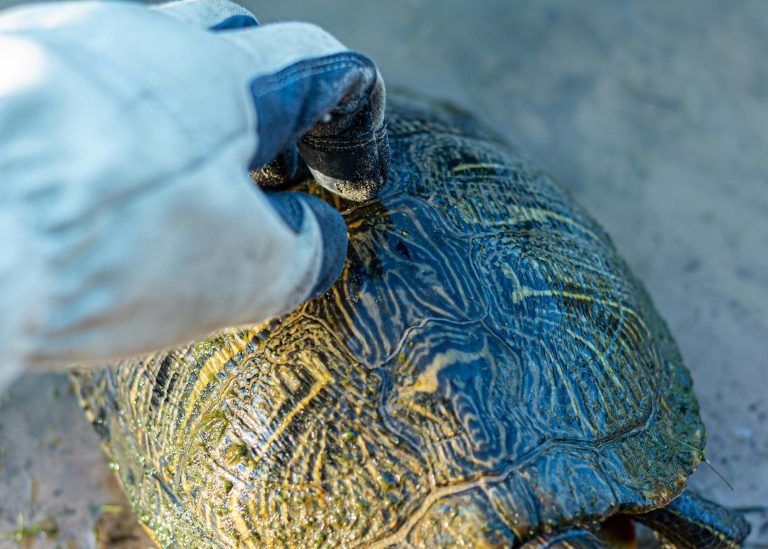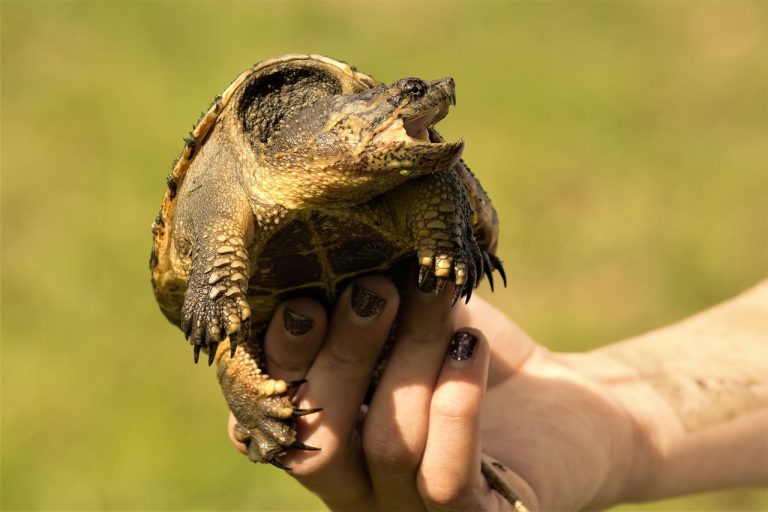Do Turtles Recognize Their Owners?
“Ever wondered if your beloved pet turtle truly recognizes you? It’s a common query among turtle owners. Surprisingly, these seemingly solitary creatures can exhibit distinct behaviors based on who’s around them. So, I set out to unravel the mystery of whether turtles can indeed identify their owners.
After some careful observation, it turns out they can! Your turtle’s familiar with your presence. That’s why it doesn’t react defensively when you approach, unlike with strangers. However, let’s be real here—turtles aren’t exactly known for their social skills. They’re more reserved compared to our furry friends like dogs, who shower us with affection.”
Despite not perceiving us in the same manner as humans or other pets might, turtles still recognize our significance in their lives. But how exactly do they perceive us if not through the lens of human or animal interaction? Let’s delve into this intriguing question.
How Do Turtles Think?
If you’re curious about how a turtle perceives its owners, it’s essential to understand the cognitive framework of a turtle’s mind. Turtles, being reptiles, don’t boast advanced cognitive abilities, despite being popular pets.
To grasp what matters to a turtle, consider these four key priorities: Survival, Food, Basking, and Reproduction.

- Survival:
Above all else, a turtle prioritizes its own survival. This instinct guides their behavior, prompting them to swiftly vacate any environment they perceive as potentially hazardous. When sensing danger, they’ll seek cover or flee to ensure their safety.
Contrary to the misconception of turtles being timid, their actions are simply pragmatic responses to threats. After all, when the primary goal is survival, there’s little benefit in risking one’s safety for short-term gains.
- Food:
Following survival, a turtle’s next concern is nourishment. Continuously on the lookout for sustenance, turtles prioritize finding their next meal. In captivity, where they feel secure, food becomes their singular focus. Unlike more playful pets like cats and dogs, turtles show little interest in toys, channeling their energy solely into feeding. - Basking:
Additionally, regular exposure to sunlight is vital for a turtle’s well-being. Basking is a crucial aspect of their health regimen, prompting them to seek out suitable spots for soaking up rays.
How Do Turtles Recognize Their Owners?
Turtles, unlike more sociable creatures, lack a penchant for companionship. Their interactions with other turtles are typically driven by necessity rather than genuine camaraderie. In their world, there are no human or turtle buddies to speak of.
Their solitary nature isn’t a matter of choice; it’s simply a survival strategy. Friendship doesn’t offer them any tangible benefits for their existence, so they don’t invest energy in fostering social connections. While they may recognize their owners, don’t expect any warm and fuzzy displays of affection.
However, despite their seemingly indifferent demeanor, turtles possess the same five senses as humans. They use these senses to distinguish their owners from others. When your turtle acknowledges your presence, it signifies your importance in its world. You hold the key to its survival, providing food and shelter.
It might not be the heartwarming companionship you envisioned, but to a turtle, you’re akin to a reliable food source. This role holds immense significance for them, even if it lacks the sentimental appeal we might desire.
By fulfilling their basic needs—food, safety, and a place to bask in the sun—you earn their trust. They recognize you as the provider and respond accordingly, showing trust by refraining from aggression and engaging with you. Holding them won’t result in a defensive reaction, but an unfamiliar hand might provoke hostility. Trust, for a turtle, is built through consistent care and provision.
Do Turtles Recognize Their Names?
Based on my own observations and those of others, it seems that turtles don’t really respond to their names. While they do have ears and can hear, their auditory range is quite limited, and they don’t seem to attach much importance to the names we give them.
Turtles aren’t particularly perceptive creatures, and they won’t come to you just because you call their name. They’re more inclined to approach when they sense a need, such as the presence of food. Interestingly, they rely on vibrations to identify their surroundings, which includes detecting the vibrations caused by movement.
In the grand scheme of things, names seem to matter more to us as their owners than to the turtles themselves. They’re indifferent to the labels we assign them and are more attuned to other cues, like the scent of food or vibrations indicating someone’s presence.

Do Box Turtles Identify Their Owners?
Box turtles are widely regarded as one of the most intelligent turtle species out there. They’ve impressed researchers with their remarkable ability to navigate back to their homes even after covering considerable distances. Additionally, they exhibit a knack for solving mazes, a feat that underscores their high level of intellect.
But does their intelligence extend to recognizing their owners? In short, yes. Much like other turtle species, box turtles are capable of identifying their owners. They do so by familiarizing themselves with both the sound of their owner’s voice and their visual appearance. In fact, many box turtles display genuine happiness upon reuniting with their owners.
As their owners draw near, some turtles even gravitate towards the bowls containing their meals, showcasing the depth of their intelligence and understanding of routines. It’s a testament to the cognitive abilities of these fascinating creatures.
Conclusion
In summary, turtles stand out as some of the most charming pets one can have. They boast a non-aggressive nature, ensuring the safety of their owners. Impressively, they can recognize their owner’s face, detect their scent, and even sense their presence through vibrations.
These hardy creatures possess the resilience to thrive independently in the wild. While they may not be inherently social, one can’t help but wonder if, given the chance, they’d find unique ways to express gratitude for the care and companionship provided by their human counterparts.



![How To Catch A Pond Turtle? [Traps, Baits, Tips]](https://spreadhapiness.com/wp-content/uploads/2024/03/pond-2-768x511.jpg)

